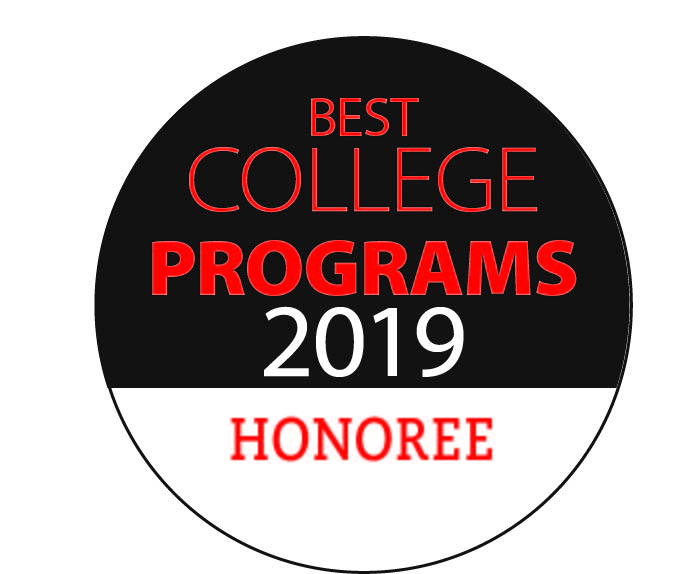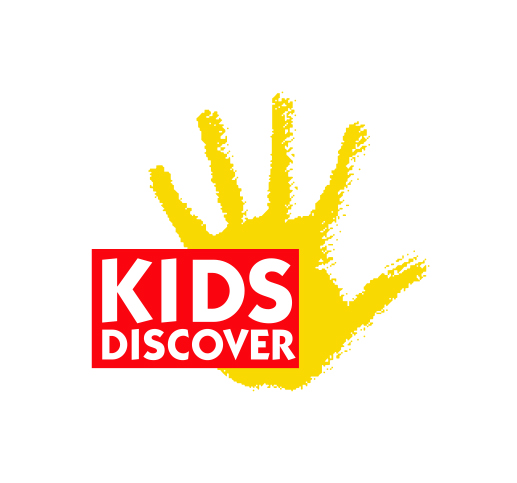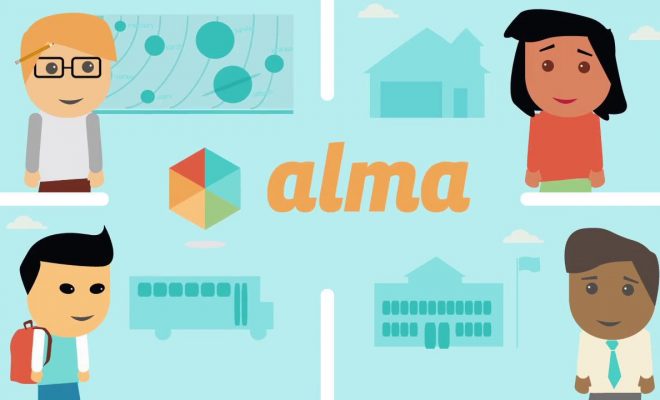2019 Best Traditional and Online Special Education Programs in America

Click here to learn more about the ranking methodology that we used to compile this list.
Congratulations! If you represent a college or university that is included in this list, please collect your seal below.

Becoming an educator will give you the opportunity to shape the development of younger generations. Special education is particularly in need of educators, as it can be mentally and emotionally strenuous for educators to interact closely with students who may have a range of mental, emotional, learning, or physical disabilities. If you are considering becoming an educator and believe that you would be well-suited to interact with students requiring special education, there are many educational opportunities available in this field.
Most people who major in special education go on to be K-12 educators in public or private school systems, however, there are a few other potential career paths that lead off these programs:
- Special Education Non-Profit Administrator
- Private/Home-Schooling Educator
- Special Education Curriculum Developer
- Special Education Policy Advocate
A teacher with a degree in Special Education earns an estimated $56,800 annually. Teachers with training in special education are typically difficult to come by, and job opportunities in special education are projected to grow by 8% annually.
Best Traditional Bachelor’s in Special Education Programs
Arizona State University offers a dual certification degree program that allows you to graduate with both a certification in general elementary education and in mild-moderate disabilities special education, widening the range of potential career options you would be able to pursue after graduation. The program collaborates heavily with area public schools, giving students the opportunity to work in special education settings with certified special education teachers.
This program requires that you maintain at least a 2.5 GPA overall, and you will complete extensive coursework in both educational topics to be taught in the classroom and child psychology as it relates to special education.
Indiana University at Bloomington offers two degree programs in Special Education: one that focuses on primary education, and another that focuses on secondary education. In addition, you can become certified in both special education and general education through the Teaching All Learners Dual Degree program, which may be a good opportunity if you are not completely sure you want to work in special education.
Both programs include intensive field experience in educational settings that fit your interest, giving you work experience that you can leverage to find a job after graduation. The program requires that you maintain a 2.5 GPA within Education and a 2.0 Overall GPA, and that you complete at least 124 credits in order to graduate.
The University of Minnesota in Twin Cities has a well-known and highly ranked program in Special Education that includes the attainment of a teaching license for the state of Minnesota. This program also provides opportunities for you to go into educational settings and work with special needs students, giving you a chance to apply the knowledge you’ve gained in the program and acquire valuable teaching experience.
This program requires that you keep a 2.75 or higher GPA and complete 120 credits to graduate. In addition, you will take foundational courses in education and child psychology, as well as your choice of electives to supplement your knowledge.
The Ohio State University, already a well-known and respected university, offers a B. Education degree program in Special Education. This program allows you to choose the age group and disability severity group that you would like to specialize in, allowing you to tailor your degree to your specific interests.
In order to take part in this program, you must apply in late September to start in the following spring semester. You must also have and maintain a 3.0 GPA or higher and complete 120 semester hours at minimum.
The University of Texas at Austin offers a special program that allows students to become certified to work with children at all levels, from early childhood to 12th grade. If you are unsure of which age group you’d like to work with, this may be the program for you! The All-Levels Special Education program falls under the B.S. program in Applied Learning and Development, which also offers other concentrations in the event that you are interested in focusing on more than one area of education. This program also certifies you to teach in Texas.
To participate in the special education program, you must apply by March 1st the spring before the fall semester you’d begin. The program can only be started during the fall semester, and requires a minimum 2.5 GPA.
Best Online Bachelor’s in Special Education Programs
Central Methodist University has a degree program in Special Education that gives you both the knowledge foundation needed to teach in the K-12 educational system and the child psychology knowledge needed to tailor that education to special needs students. Applicants to this program must pass Missouri’s basic skills test and maintain a 2.75 GPA before applying to the Education program at CMU.
Western Governors University offers a special education degree program with flexible timing that allows students to complete the degree in anywhere between 1.5 and 4 years. The program prepares you to become licensed anywhere in the US, although it does not provide a route to attain the certification within the program. It also includes observation hours, where you can experience a special education classroom setting to prepare for future career paths in the classroom.
This program requires that you pass a state-specific basic skills test and a criminal background check in order to be admitted into the program, in addition to the general admissions requirements. In order to graduate, you must pass 45 courses.
Chadron State College offers a special education degree program that can be completed completely online, with the option of focusing on special education alone or also becoming certified in early childhood education. In order to attend this program, you must apply with your high school transcripts or official GED certification and your ACT scores to be considered. Once admitted to the program, you must maintain a 2.0 GPA and complete the relevant core coursework in order to graduate.
St. Petersburg College offers a degree program in Exceptional Student Education online through their distance learning program. This program is offered full and part-time, and gives options for completion either fully online or partially online and partially in person. They also offer school-based experiences for distance learners in order for you to acquire real work experience.
This program requires all applicants to have an Associate’s degree, a minimum 2.5 GPA, and passing scores on Florida’s general knowledge test. In addition, it requires you to maintain a 2.5 GPA throughout the program, to take courses in cultural diversity, and to take courses in a foreign language.
Mayville State University offers a Bachelor of Science in Education degree in Special Education that can be completed in four years online with required in-person sessions during the summers. If you are already a licensed teacher and are interested in becoming licensed in special education, this program facilitates that by only requiring in-person attendance over breaks in the academic calendar. If you are not a licensed teacher, you can also pursue a degree in Education online concurrently, which will allow you to get both licenses at once.
Regardless of which program you plan to enter, you must maintain a 2.75 GPA throughout the program, and must have had at least a 2.75 in any previous degree programs. The program takes approximately four years to complete, with approximately 150 credits needed to graduate, depending on your specialization.
How to Choose the Right Program
You can choose the perfect program based on your future career aspirations and the academic course load each school provides. Some will focus more specifically on Early Childhood Education while others give you a greater opportunity to study Secondary Education. After this, you can rank schools by convenience, price, and accreditation.
Who accredits a bachelor’s degree in special education program?
Understanding the accreditation schools possess is the key to ensuring that you receive a top-notch education that will prepare you for a future in special education. Every school, including online programs, will have to maintain some type of accreditation with a state, regional or national accrediting agencies.
Beyond this accreditation, many will opt to maintain voluntary status with the Council for Exceptional Children (CEC). This helps to hold the schools accountable for offering a well-rounded curriculum that adequately prepares students for the future. Not all of the top schools hold this accreditation, but it should be considered before you make a choice.
How long does it typically take to get a degree in special education?
Most colleges and universities allow you obtain your degree in special education in four years, just as with a standard bachelor’s degree from other programs. Some course loads will require five years depending on the timing of the courses offered and your enrollment date.
What does the curriculum include?
The modern curriculum should include coursework in child psychology and teaching pedagogy, including classes on subjects that you may be asked to teach once hired. Classes should now start looking toward the future with coursework focused on new research on educational approaches to special education, required fieldwork with participating nearly school systems, and classes explaining the disabilities commonly found in special needs students.
Students should also learn how to communicate with students with a range of learning or communicative disabilities. You should be required to take a variety of courses designed to enhance your communication skills.
A well-rounded special education program should also include plenty of liberal arts core classes and potentially even a minor or double-major in another subject.
How can I finance my education?
Obtaining your bachelor’s degree can be an expensive endeavor. You can finance this dream by applying for financial aid and grants through the Free Application for Student Aid (FAFSA). Grants offered by the federal government do not need to be repaid upon graduation.
Some of these top universities will also have scholarships available to eligible students on a first-come-first-served basis. These scholarships will not need to be repaid but might be based on your grades, test scores, and other criteria. Similar to a scholarship, some colleges will offer work-study programs that allow you to work off your debt in various positions around campus.
For the remaining amount, you might consider taking out a student loan that can be paid back upon graduation. Look for loans that have a low interest rate and don’t impose a penalty for prepayment. The federal government tends to offer more advantageous loan programs compared to private lenders.
What are the employment prospects for a bachelor’s in special education graduate?
Understanding the employment prospects for those who receive their bachelor’s degree in journalism can vary based on the unique career path you decide to take. To give you an idea of what is expected for this field in the coming years, we will take a look at the most popular careers that many people with this degree choose to pursue. All data is based on the figures available from the United State Department of Labor based on projects made from 2016 to 2026.
Pre-School Special Education Teachers: Teachers with a special education degree who are interested in working with very young children should see an eleven percent increase in the number of jobs available over the coming decade. It is growing at a slightly faster rate than the average employment rates in the country. There are currently 29,200 positions with this title.
Kindergarten and Elementary School Special Education Teachers: Those interested in working with slightly older children can expect a seven percent increase in the number of jobs available over the coming decade. 188,900 jobs were available in 2016 with another 9,700 set to be created by the year 2026.
Secondary School Special Education Teachers: This position also is expected to continue to grow by about seven percent over the coming years. There are currently 131,900 positions available in this field, giving you plenty of options.





